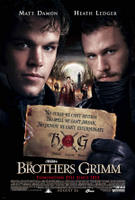March of the Penguins
 Director: Luc Jacquet
Director: Luc JacquetMain Cast: Emperor Penguins, Morgan Freeman
Writer(s): Luc Jacquet & Jordan Roberts (Narration)
Director of Photography: Laurent Chalet & Jérôme Maison
Producer(s): Yves Darondeau, Christophe Lioud, Emmanuel Priou
Editor(s): Sabine Emiliani
Original Score By: Alex Wurman
Release Date: 2005 June 24 (limited)
Frightfully boring, filled with useless factual information, bursting with repeated shoddy recreations of actual events, and presented as a piecemeal story with little to grab the audiences' interest. This is the typical predisposition the population generally holds towards documentaries. Especially ones about animals. This film however, breaks these stereotypes and delivers incredible and heart-warming footage of a rarely seen phenomenon.
I waited a while to see this film. With rising prices for movie theater showings I was hesitant to drop $18 dollars to see a documentary that I feared would be mediocre, figuring I could simply wait until it was out on DVD. I like documentaries though, so I finally found time to catch a matinee. I am wholeheartedly glad that I did. I was not disappointed. This film lives up to the many praises that have been showered upon it.
The story revolves around the annual courting, mating, and child-rearing ritual that the Emperor Penguins perform in the far reaches of one of the most desolate places on the planet, Antarctica. The team of filmmakers follows the penguins for the entire period providing glimpses of things never seen before on film. This is expert documentary filmmaking and though not original in concept (the mating habits of the animal kingdom have been documented countless times on film) the species focused on in this episode was refreshing and unique. Their tale was not just of semi-monogamous procreation, but also of love, dedication, courage, and survival.
The filmmakers endured indescribably harsh conditions on the Antarctic wastelands to bring the audience unbelievably close to these incredible Emperor Penguins. I found my mouth hanging open at some of the footage. The icy blues of the glacial formations, the feathered texture of the courageous penguins, the brutal blizzards, and the underwater food gathering antics were all awe-inspiring. I kept having to remind myself that this was actual live, unscripted footage and not created by some computer geek at his Sun Graphics workstation. At times the visuals were so incredible it appeared as though the camera was somehow attached to one of the penguins in a strange first-person perspective. I doubt that you could come much closer than these filmmakers did.
Several scenes in the film were disturbing and for that reason noteworthy. The first was after a mother experiences the loss of her child (they have only one per year) to a brutal winter storm. She stares lovingly down at its frozen, broken body. In anguish she cries out over and over telling the other penguins her spirit is mourning. Then, in selfish fashion, she sees another penguin with something she wants, a baby. Acting on what appears to be jealous impulse she tries to take it away from the other mother, but the group of penguin ladies will have nothing to do with this behavior. They beat her with their wings and peck her with their beaks until, exhausted, she surrenders. The group has gone to great lengths to protect this young penguin from one of their own, but when an outside predator appears they leave the youngsters to their own devices.
In an equally disturbing scene a group of young penguins, now exploring and playing on their own, are attacked by a large sea bird. The bird tries repeatedly to catch one of the small waddling penguins and eventually captures one in its strong beak. While the food chain is merely part of the complex nature of a particular ecosystem it is the fact that the mothers stand nonchalantly looking on as all this unfolds that is most upsetting. None raises a squawk or a wing or a beak to protect the fruit of their labors. It is this fact that makes the whole incident a bit bothersome.
These two instances demonstrate among the Emperors some unusually human-like behavior, both simultaneously unsettling and captivating.
Though very well done, there were, in my mind, a few flaws in the film. The running time was a little long for me. I, admittedly, glanced at my watch a few times during the film wondering if things were almost through. There were also a few points where the camera lingered too long on the affectionate close-ups of one penguin couple; tediously showing them again and again from different angles and at different speeds rubbing their beaks together. The score was occasionally childish and contrived as well. In a film that relied upon such powerful visuals with few verbal cues, save the narration, I expected the orchestration to bear the burden of the frequent silence. Unfortunately, it was not fully up to the challenge.
Speaking of verbal cues, Freeman's soothing voice was perfect. The narration was skillfully written, brilliantly performed, and full of unique facts and descriptions of the life these animals. He was born to do work like this.
Bottom Line: Suffering through severe conditions the filmmakers created a definitive and touching story of devotion and perserverance. They were able to capture both the monumentally exciting moments filled with joy and those that were more remorseful, portraying skillfully a full range of emotions. All in all this film was amazing. It was able to bring solid factual information with incredible visual imagery to create a cohesive and intriguing story of life, death, and survival. Though not perfect, it is a film that can capture attentions from the young child to the oldest adult and leave both feeling inspired.
A waddling 8 out 10.
~RG




